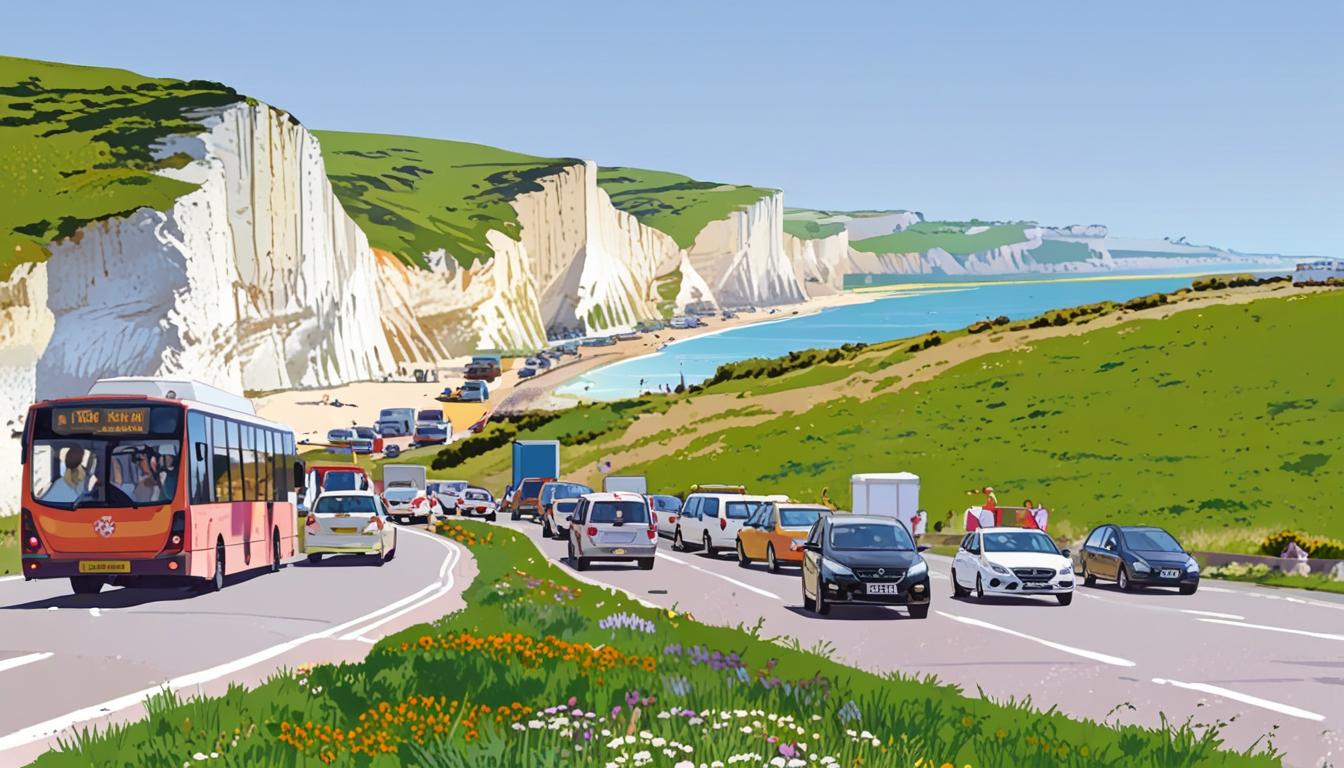The recent decision by the National Trust to prohibit tourist coaches from parking at Birling Gap and the renowned Seven Sisters has resulted in unforeseen complications for local residents. The ban, implemented in an attempt to manage the significant increase in visitor numbers—reportedly growing from 350,000 in 2018 to around 600,000 in 2022—was aimed at reducing the impact of heavy tourist traffic on the area's iconic white cliffs. However, local inhabitants now claim that this measure has caused severe traffic disruption and raised safety concerns.
Following the ban instituted last month, reports indicate that coach operators have continued to arrive in large numbers. Residents report that this has led to chaos on the narrow road leading to the site, as buses are parked on the verges and passengers are dropped off directly into the road. Phil Myerson, a 75-year-old resident, expressed frustration over the situation, stating, “The coach ban hasn't come a moment too soon but it has completely backfired. Tourists are wrecking this place. If anything, they are causing more damage now than they were before.”
Residents describe a situation of “wholesale traffic chaos,” where the ongoing influx of visitors results in the trampling of wildflowers and grasslands, with concerns that the unregulated tourism could further damage the environment. Myerson noted, "In the heat, the place is turning into a dustbowl," suggesting that the ecological impact has worsened.
The site has not only gained popularity due to its breathtaking views but has also featured prominently in various media, including movies such as Atonement and Harry Potter and the Goblet of Fire. This visibility has attracted a burgeoning number of tourists, including many from Southeast Asia, who often visit primarily for photo opportunities.
Local sentiment appears to favour a reconsideration of the ban. Jon Ledham, an avid walker, advocated for stricter enforcement of safety guidelines to prevent coach drivers from dropping passengers into hazardous locations. "We have seen a big uptick on people coming from Southeast Asia. They just want to take a selfie, eat an ice-cream and then move on to the next photogenic location," noted Lloyd Monk, 65, a nearby resident.
In response to the backlash, the National Trust acknowledged the challenges posed by increased visitor numbers. A spokesperson said, “We urge people to be responsible when parking at Birling Gap and to think of local residents and safe access for emergency vehicles. We encourage coach operators to use the dedicated coach parking facilities in the nearby area.” They emphasised that the decision to ban coaches was a specific response to issues faced at Birling Gap and was not indicative of a broader policy across the Trust's sites.
Former National Trust employee Dot Skeaping, 80, who lives near the cliffs, emphasised the desire for visitors to appreciate the area at its finest. “The National Trust wants to welcome people to Birling Gap but it wants them to see it at its best,” she remarked, advocating for measures that balance accessibility with preservation.
While the National Trust continues to welcome visitors arriving by car, motorbike, minibus, and bus services, the ongoing concerns from the local community regarding safety and environmental integrity highlight the complexities of managing popular tourist destinations. The future of coach access at this picturesque site remains uncertain as discussions continue about finding a suitable resolution.
Source: Noah Wire Services
